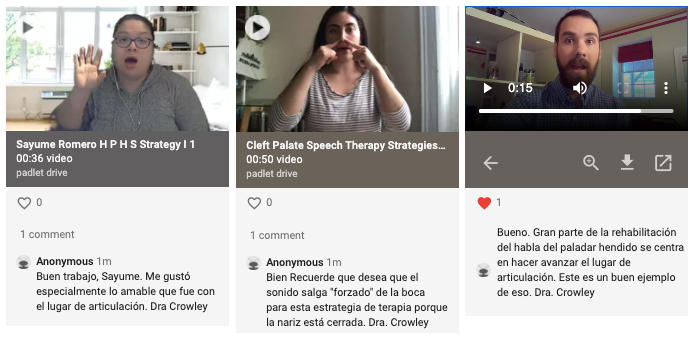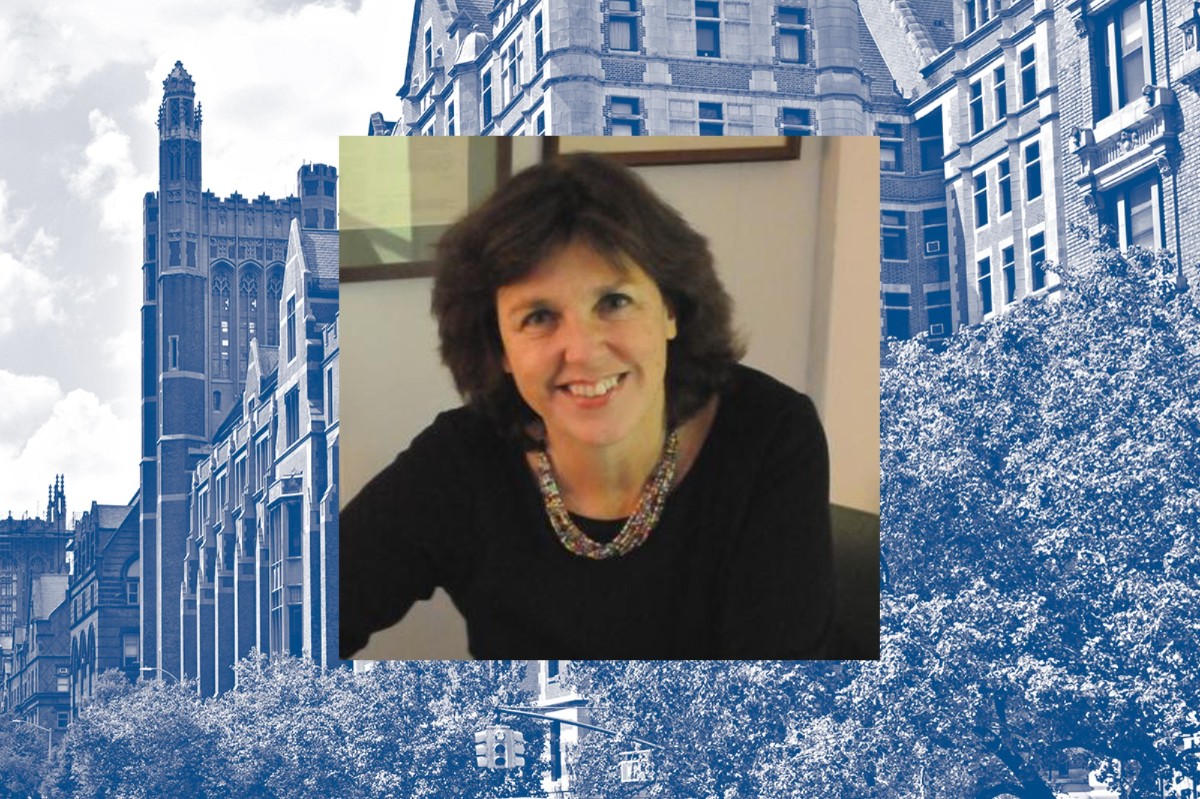In an interview on ThriveGlobal.com, Cate Crowley, Professor of Practice and Director of Teachers College’s TC’s Communications Science & Disorders Program, tackles the nuances of providing online speech therapy for patients who have undergone surgery to correct cleft palate — a growing concern for practitioners as the COVID pandemic continues to reach new levels in many nations around the world.
Crowley, who this past year led her own students in providing online therapy for children in the Colombian city of Neiva, explains that “the main benefit of having cleft patients in front of us for speech therapy is being able to perceive the sounds they’re making when they speak,” adding that “the core of our work is listening with a fine-tuned ear to hear sounds to help guide our therapy recommendation based on what specifically needs to be addressed.”

ALL ABOUT CONNECTION Students of Cate Crowley’s did online speech therapy this past year with children in Colombia. Catching all the nuances of sound production is a major challenge of the medium. (Photos courtesy of Cate Crowley)
[Read a story about the online work of Crowley and her students in Neiva.]
Working virtually, Crowley says she’s “learned from Trevor Noah to look in the camera rather than looking down at the image of the person on the screen.
“In this virtual world, I have to do what I can to be as present to the person I am talking with online,” she says. “When I look at the camera, the person sees me as looking directly at them, establishing a more direct and intimate relationship” — which is essential so that “patients and parents feel the value of the work and ask questions when they don’t understand something or talk about their concerns with progress or approaches.”
Telehealth provides access for all the children who need the services, not simply those who live near a provider or whose parents can take the time off from work to travel long distances on a regular basis for the therapy.
—Cate Crowley, Professor of Practice
There are benefits to online therapy, Crowley says. For example, “Telehealth provides access for all the children who need the services, not simply those who live near a provider or whose parents can take the time off from work to travel long distances on a regular basis for the therapy.”
The pandemic has spawned a great deal of innovation approaches to treatment, and Crowley would like to see them widely shared.
“While it may seem like heresy to academia and with scientists, I think scholars and researchers should consider using their power to negotiate time limits for the length their work remains under copyright protection,” she says. “While the system on its surface appears to be beneficial, encouraging people to produce innovative content, it actually creates an enormous barrier to the flow of information and knowledge globally.”
